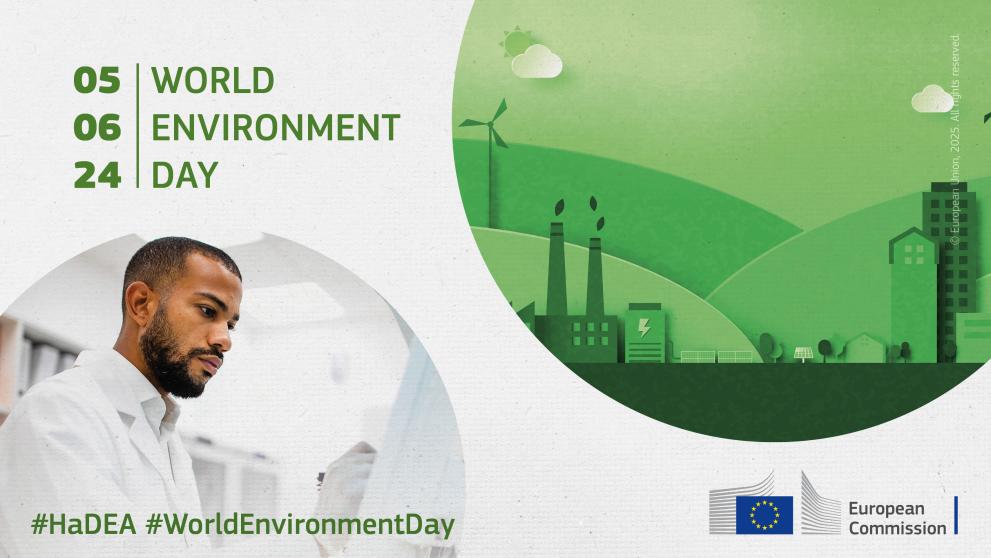
Every year on 5 June, World Environment Day puts the spotlight on the critical environmental challenges of our planet, engaging people in the effort to preserve and enhance the environment.
Discover how EU-funded projects managed by HaDEA contribute to a more sustainable world, by fostering open collaboration for innovation in bio-based nanomaterials, biodegradable solutions, and waste-based circular economy for industries.
- BIOMAC project is creating an Open Innovation Test Bed (OITB) ecosystem openly accessible to SMEs and the industry via a single-entry point. The aim is to establish an open collaboration community that supports innovation and minimises investment risks in the development of bio-based nanomaterials. OITB services tackle several aspects: regulation, safety, sustainability, circularity, and market potential with modelling, process control, standardisation, and characterisation. Strategic sectors such as Food Packaging, Construction, Automotive, and Printed Electronics can benefit from this project.
- INN-PRESSME is creating a sustainable Open Innovation Test Bed (OITB) dedicated to assisting European companies in scaling up their nano-enabled biomaterials and processes. The combination of nanocellulose, bioplastics and natural fibres together with nanotechnology approaches, allows to develop bio-based materials with properties and functionalities that equal or outperform their fossil counterparts at competitive prices. Essentially, this approach will lead to new products that are recyclable and/or biodegradable solutions that replace oil-based products. These advancements will undergo testing in mass market sectors such as packaging, energy, transport, and consumer goods.
- BIONANOPOLYS is working on an Open Innovation Test Bed (OITB) for the design, development, testing, regulatory and environmental assessment, and upscaling of promising nano-enabled bio-based materials. Such collaboration and innovation can exert influence in areas from packaging and coatings to biomedicine. More particularly, the developed materials are to be tested in packaging, cosmetic, medical, foam, nonwoven, coating, 3D printing, textiles, and cellulose-paper.
- BIOMAT is establishing an Open Innovation Test Bed (OITB) that allows cross-border partnerships and speeds up innovations in nano-enabled bio-based foams, used for building, construction, automotive and furniture and bedding. The objective of the collaboration is to reach efficient processes and sustainable added-value products from low carbon footprint materials. The project will cover the entire Value Chain (VC) from fundamental biomaterials and functional nanoparticles to the final products and their proof of concept in an industrial environment.
- BioICEP is developing a solution for mixed plastic pollution environments. Specifically, researchers are working on three innovative booster technologies that are designed to enhance the degradation rate of plastics. To this end, the project is using a triple-action depolymerisation systems approach to break down plastic waste: mechano-biochemical disintegration processes, biocatalytic digestion and microbial consortia. The outputs will be used as building blocks for new polymers or other bioproducts to enable a new plastic waste-based circular economy. This contributes to reduce the burden of plastic waste in the environment.
Background
Horizon 2020 the EU’s multiannual funding programme between 2014 and 2020. H2020 provided Research and Innovation (R&I) funding for multi-national collaboration projects alongside individual researchers and SMEs via special funding instruments. Horizon 2020 is succeeded by Horizon Europe Programme, which will run until 2027.
Details
- Publication date
- 5 June 2024
- Author
- European Health and Digital Executive Agency
- Programme Sector
- Industry
- Programme
- Horizon Europe
- Horizon Europe Cluster 4: Industry
- Tags
- EUFunded
- Industrial research
- Innovation
